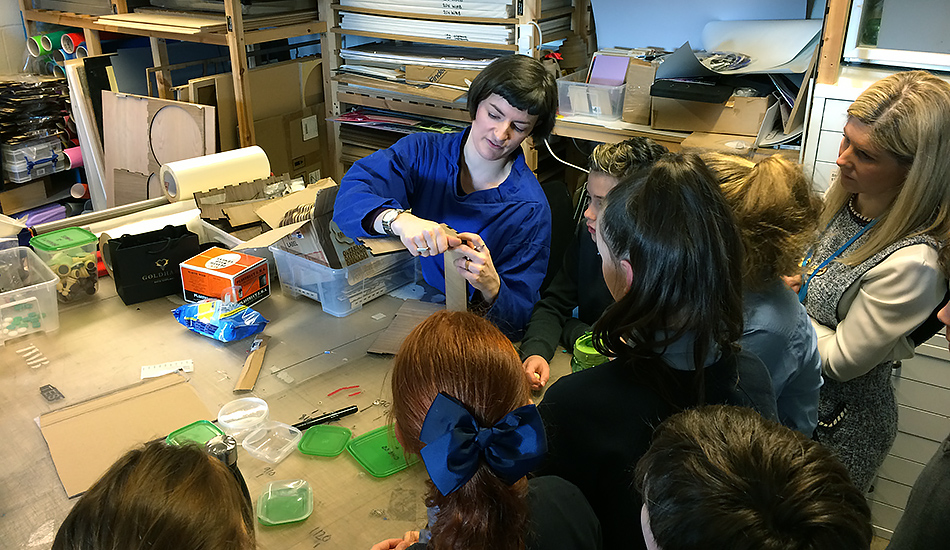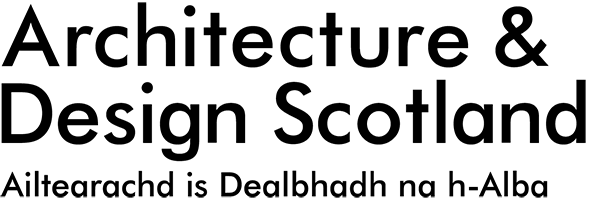Our Lady of the Mission (OLM)
How can we build a culture of collaboration?

Tests of Change
The following case study uses the Plan-Do-Study-Act approach from the Test of Change projects.
Tests of Change (ToC) is based on an action enquiry cycle – Plan, Do, Study, Act (PDSA). This 4-step process encourages learners and educators to be at the forefront of problem-solving and decision-making to drive change in their own learning environments.
Teachers and pupils work together to explore how transforming learning as identified through ToC goals and using design-principles tools can lead to enhancing the quality of learning in our schools.
Plan
Our Lady of the Mission's improvement plan commits to using innovative approaches to 21st century learning and teaching.
Working together as a learning community, visionary workshops for teachers and learners helped the school find two main issues:
- Learning spaces were not working well.
- There was a desire to create new experiences in science, technology, engineering, the arts and mathematics (STEAM), social spaces and family learning.
The school decided that, because they were not due for major investment, they would build ‘a culture of collaboration’. This culture would see existing spaces re-imagined and re-purposed to create new opportunities.
Do
The first step was to declutter. Learners and teachers then together agreed a strategy for how to improves spaces – a ‘space strategy’ – for their school improvement plan.
Through a series of ‘space hacks’, learners tested ideas by building 1:1 scale models of new learning spaces. They tried out new methods of collaboration and solo working.

Study
A team of learners – ‘the space pioneers’ – helped implement the space strategy. Using what they learned from the tests, they worked with a designer to create new furniture.
They visited the manufacturing facility, put the furniture together and helped their classmates use the new furniture.
Parents and grandparents inspired them to incorporate classic board games in the furniture they designed.

Act
Through these initial workshops teachers and learners maximised the opportunities provided by the Tests of Change process.
Drawing on our expertise, they have embedded learning-space design within their school in the long term. These experiences have:
- pulled them together as a school
- enabled them to maintain a relationship with a design consultant
- demonstrated how learners get more involved when they see their teachers’ commitment
- taught learners new skills in line with the Scottish Government’s Developing the Young Workforce strategy
- provided a way to easily identify and monitor what experiences and outcomes the learners were meeting
Experiences and Outcomes achieved through the Tests of Change process

Space Pioneers
LIT 1-09a

Pupils became ‘Space Pioneers’ who got involved in every aspect of the design, they were responsible for collecting views from their peers’

Design workshop
HWB 0-13a / HWB 1-13a / HWB 2-13a / HWB 3-13/TCH2-12a

Pupils worked closely with our team and Flux studios. They visited the design workshop and gained hands-on experience and sourced furniture that is now in the school.

Space hacks
MNU 1-11a/ EXA 2-03a

Pupils participated in Space Hacks a process that uses cardboard boxes, soft furnishing and furniture to test scalability.
Developing our young workforce (DYW)
Teachers used the DYW Strategy to help children identify the skills they were developing by participating in the Tests of Change process. Here are a few of the ‘I can’ level 1 and 2 statements they achieved:
- I can describe different jobs in my community and some of the skills needed for these
- I can learn about the world of work from visits, projects and my experiences
- I believe I can succeed in any area of work
- I can talk about my strengths, interests and skills and show evidence of my progress
- I can identify people in my network who help me broaden my horizons
- I can explain to others my ambitions/what I would like to do and look for ways to achieve them/that
- I believe I can maximise my potential in any type of work
How can the room we work in make a lesson better or more inspiring?
The spaces we work and learn in play a huge part in shaping our mental health, happiness, and ability to learn. Our Shared Learning toolkit will help guide you and your pupils step-by-step on a collaborative mission to find the answers.
